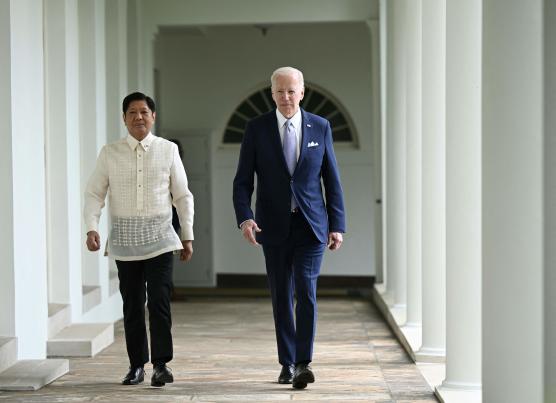Sebastian Contin Trillo-Figueroa, Geopolitics Analyst in EU-Asia Relations and AsiaGlobal Fellow, The University of Hong Kong
Jul 21, 2023
Chinese Premier Li Qiang recently visited several EU nations, and his visits revealed much about where China sees opportunities to make inroads in the West, and his reception by European counterparts show some notable approaches by EU leaders to China’s overtures.
Zhong Yin, Research Professor, Research Institute of Global Chinese and Area Studies, Beijing Language and Culture University
Jul 19, 2023
U.S. Treasury Secretary Janet Yellen’s visit to China served as a reminder of the integral relationship that exists between the two countries. While the U.S. now says it merely seeks de-risking in its trade policies, it should be careful not to throw the baby out with the bathwater.
Arvind Subramanian, Visiting lecturer at Harvard’s Kennedy School of Government
Jul 12, 2023
The unprecedented lovefest between the United States and India has been striking and, frankly, puzzling. Following the pageantry of US President Joe Biden hosting a state dinner for Indian Prime Minister Narendra Modi, and of US Speaker of the House Kevin McCarthy inviting Modi to address a joint session of Congress for a second time, one wonders if America is giving away the store and getting very little in return.
Digby James Wren, Special Senior Advisor, Royal Academy of Cambodia
Jul 12, 2023
Since the Trump administration launched its trade and tech war on China, no evidence whatsoever has been revealed by state-led investigations into US allegation

Lucio Blanco Pitlo III, President of Philippine Association for Chinese Studies, and Research Fellow at Asia-Pacific Pathways to Progress Foundation
Jul 05, 2023
The Philippines and the U.S. issued new Bilateral Defense Guidelines, which help modernize the alliance, but can’t replace diplomacy when addressing differences.

Joseph S. Nye, Professor, Harvard University
Jul 05, 2023
When Indian Prime Minister Narendra Modi met with US President Joe Biden in the White House this month, many observers saw the makings of an evolving alliance a

Sajjad Ashraf, Former Adjunct Professor, National University of Singapore
Jul 04, 2023
Washington’s increased presence in the Asia-Pacific region, along with the polarization of America’s political system, are intensifying the challenge of reaching a breakthrough with China. And as tensions grow, particularly surrounding Taiwan, the U.S. must build on the momentum from Blinken’s visit and seek compromise with Beijing.

Leonardo Dinic, Expert in Geopolitics and International Business, the Future of Work, and Emerging Technologies
Jul 04, 2023
The exit of Western producers from Russia led to China's increased presence in Europe, with significant benefits for Chinese manufacturers and oil companies but also raises concerns about geopolitical implications. China's expansion and the recent rise of India as an oil exporter has led to consequences for European energy security and the global economy.

Yi Fan, a Beijing-based political commentator
Jul 03, 2023
When Tony Blinken last visited Beijing in 2016, he was there together with a large, cross-departmental delegation attending a range of bilateral dialogues. Those were better days for China-U.S. relations. Back then, perhaps even Blinken himself might not have thought that this relationship would take a drastic turn and hit “the lowest point” when he visited Beijing again – after a hiatus of seven years.

James Chau, Host, China-US Focus
Jun 29, 2023
Just as a pianist practises a new piece of music slowly, with attention to every phrase, keeping the first signs of goodwill between Washington and Beijing on track calls for a disciplined use of words. More educational exchanges and people-to-people interactions will also help improve understanding and dispel fear and suspicion.
Back to Top

- China-US Focus builds trust and understanding between the U.S. and China through open dialogue among thought leaders.
- Our Offerings
- Topics
- Videos
- Podcasts
- Columnists
- Research Reports
- Focus Digest
- Stay Connected
-
Thanks for signing up!
- Get the latest stories from China-US Focus weekly.